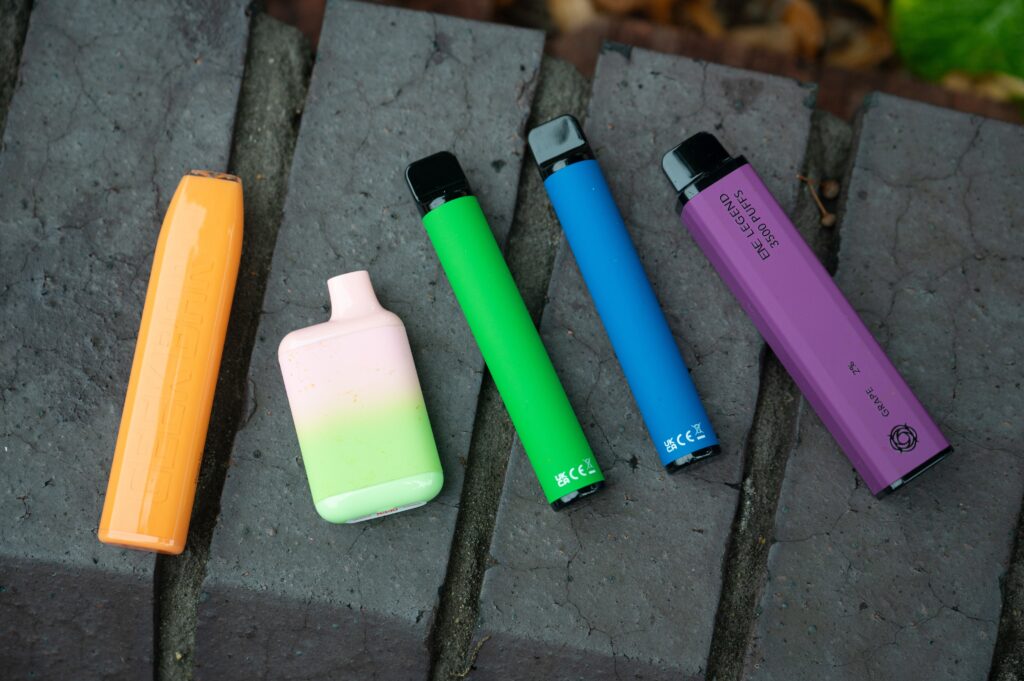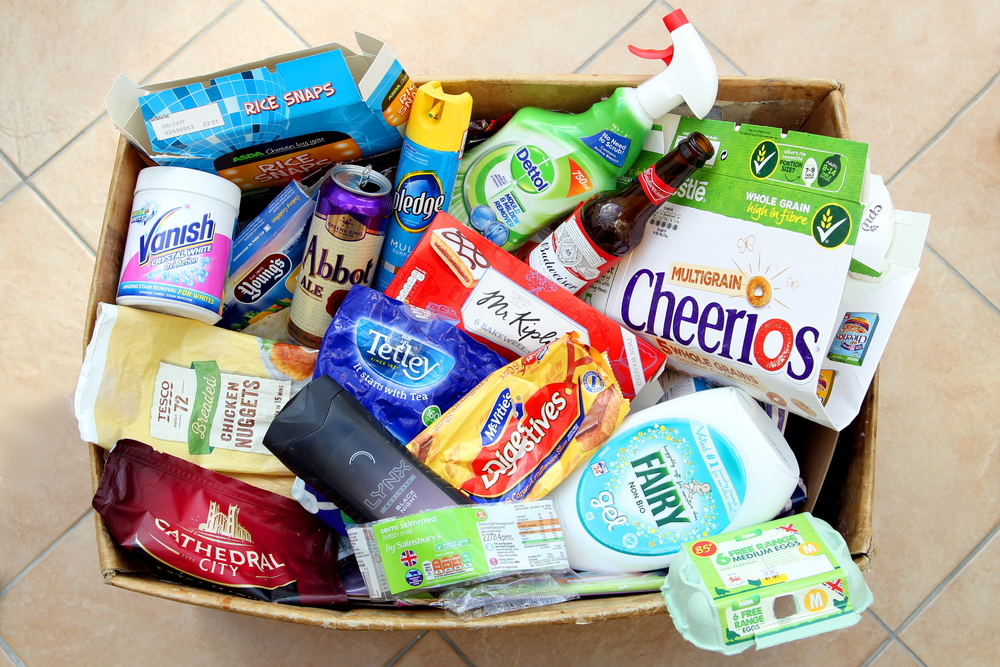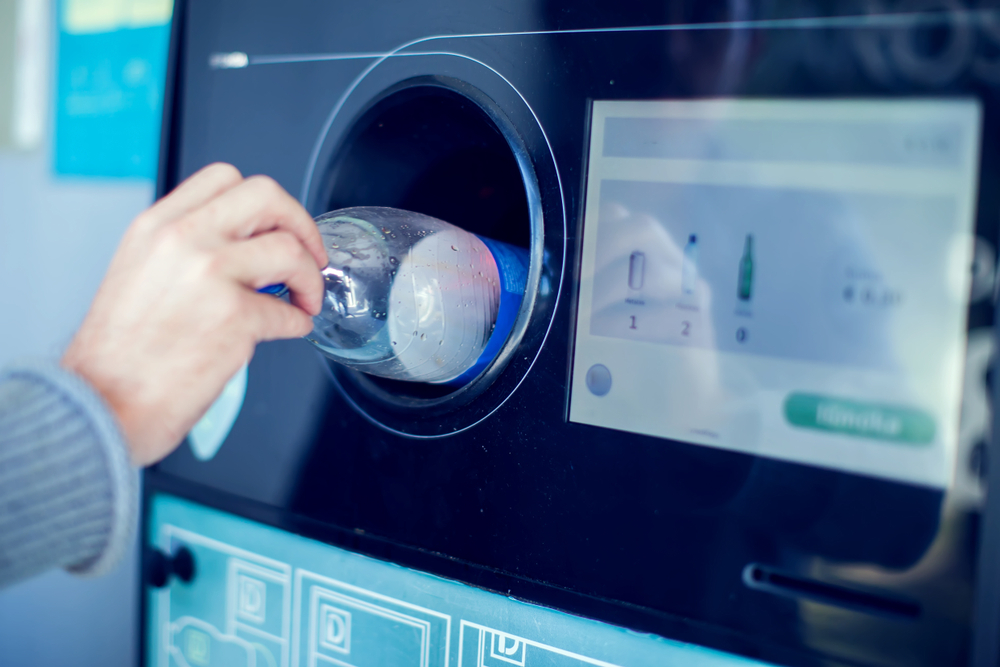The announcement came this morning from circular economy minister Mary Creagh.
Dr Adam Read MBE, chief sustainability and external affairs Officer at Suez recycling and recovery UK, said: “We welcome the government’s announcement that disposable vapes will be banned in England from June next year. Disposable vapes are an increasing problem in Suez’s waste facilities across the country, with millions thrown away every year presenting a major fire risk.
“When they are thrown away with the general rubbish, or mixed with other recycling, the batteries in disposable vapes can cause serious fires once collected, which poses a significant threat to workers at waste management sites. The ban is a positive step which will protect workers, help reduce the UK’s growing electrical waste problem and lessen our impact on the environment.”
CIWM said that it “applauds the Minster for Nature, the UK government and the Devolved Administrations” and “welcomes the timely and entirely sensible commitment to ban disposable vapes as soon as practicable”.
A spokesperson continued: “Disposable vapes are a clear example of a poorly designed product manufactured and sold with only short-term profit in mind, marketed at children and adults alike, and with little evident social or environmental responsibility shown by producers, retailers or importers.
“They strengthen the case for Extended Producer Responsibility to ensure the true cost of putting huge volumes of such products on the market is placed clearly on those that do so, not (as currently) on those who have to pay for and clean up the mess created afterwards.
“These non-recyclable single-use products are simply wasteful and harmful to people and planet. They create litter, degrading our streets and local environments and costing local authorities millions of pounds to clean up, they cause fires in waste streams putting industry workers’ health and safety at risk, and they waste valuable and critical raw materials such as lithium and copper due to their very poor design.
“As a society we must quickly learn the lessons of such poor product design and short-term thinking, as we move towards a more circular economy and a world beyond waste.”
Liam Humberstone, technical director at vape company Totally Wicked expressed his concerns: “The confirmation of the ban coming into effect from next June does concern many within the vaping industry as disposable vapes specifically have been a key entry point for many smokers seeking an easy-to-use, effective alternative to cigarettes for a number of years.
“OHID (formerly Public Health England) has consistently reported that vaping is significantly less harmful than smoking, and disposable vapes have contributed to this positive public health outcome.
“That being said, we also recognise the growing concerns surrounding the use of disposable vapes by underage individuals, as well as the environmental issues linked to single-use products. We strongly believe that proper regulation, enforcement, and education are vital in addressing these concerns and protecting young people from accessing products that are not intended for them.
“While we understand the reasons behind the ban, it’s crucial to ensure that adult smokers continue to have access to safer alternatives to cigarettes. This ban will affect a proportion of smokers, and many recent ex-smokers, who rely on the convenience of disposable vapes. It will be essential for the industry and regulators to ensure that adult users have access to other vaping options that can support their quit-smoking efforts. The focus should now be on educating smokers about reusable and more sustainable vaping options, which are equally effective and more environmentally sustainable.
“Totally Wicked will continue to uphold our commitment to ethical and responsible business practices. We will work with regulators and industry partners to ensure that, in the transition away from disposable vapes, the needs of adult smokers are still met, and that vaping remains a viable tool for reducing harm from smoking. Our efforts will remain focused on enforcing strict age-verification standards and promoting safer alternatives to smoking while ensuring young people are protected.
“As the ban approaches in 2025, we encourage open dialogue between the government, industry, and public health bodies to ensure that any regulation prioritises public health outcomes and prevents unintended consequences for adult smokers who rely on vaping to quit smoking.”
In a statement released alongside the Defra announcement, Libby Peake, head of resources at Green Alliance, said: “Disposable vapes are the last thing our children and the planet need, and for too long the market for them has been allowed to grow unchecked. Every single one wastes resources that are critical to a more sustainable economy – like lithium, needed for the batteries that power electric cars.
“When they’re littered, the nicotine, plastic and batteries they contain are all extremely harmful. Even when they’re put in a bin, their batteries can catch fire. The government is right to ban these harmful devices – it’s a welcome step in the journey towards an economy where waste is reduced by design.”
Climate activist and environmental scientist, “Less Waste Laura”, echoed Peake’s statement: “Disposable vapes exploded on to the market, becoming perhaps the first mainstream disposable electronic device to litter our streets, and reflecting the relentless evolution of the tobacco industry.
“The UK government’s action to ban these single-use products in 2025 is a welcome, and crucial, step. The ban isn’t just about cutting littered vapes; it challenges the broader rise in disposable technology driving a concerning larger increase in electronic waste, with its associated fire risk, and use of scarce materials.
“I welcome the ban from a health angle too, and see it as crucial to breaking the grip of vaping on our youth, alongside challenging the throwaway culture threatening to suffocate our planet.”
Mo Razzaq, national president of the Federation of Independent Retailers (the Fed), called for a disposal scheme over an outright ban: “Vape retailers are responsible and many offer a recycling option. Rather than banning disposable vapes, the government should be looking at making available more ways that these products can be disposed of safely and in an environmentally friendly way.
“The Fed has previously called for the introduction of a disposal scheme – similar to the deposit return scheme for single use drinks containers – and we repeat this call today as we still believe that this would better address the government’s concerns on the environmental impact that single use vape products have.
“Disposable vapes are usually more affordable, which is why many adults turn to them when they want to quit smoking. An outright ban will simply send many vapers towards unorthodox and illicit sources where there is no compliance to tobacco and vaping laws and a danger to health as the products being peddled are likely to contain dangerous and illegal levels of toxic chemicals.”
Toni McNamara, executive director of LARAC, commented: “LARAC welcomes Circular Economy Minister Mary Creagh’s announcement that legislation has been laid in Parliament to ban the sale of single-use vapes, a significant step toward reducing their environmental and public health impacts. However, LARAC believes that the legislation would be significantly strengthened by including a ban on imports, which would help curb the black market and prevent further accumulation of vape waste.
“While businesses have until June 2025 to sell off existing stock, the black market for disposable vapes will likely persist without an import ban. This could result in an ever-growing mountain of single-use vape waste. Almost five million vapes are discarded weekly, contributing to pollution and posing severe fire risks in the waste sector.
“Minister Creagh’s comments about the wastefulness of single-use vapes are important, but stronger enforcement is needed to prevent illegal products from flooding the market.
“LARAC urges the government to address both legal and illegal vape sales to ensure the ban’s success. LARAC remains committed to calling for robust producer responsibility measures to be enforced.”
Councillor David Fothergill, chairman of the Local Government Association’s Community Wellbeing Board, said: “We’re delighted that the Government has listened to the longstanding concerns of the LGA and councils and is taking decisive action to ban single-use vapes from 1 June 2025.
“With over 5 million thrown away each week. Disposable vapes are inherently unsustainable products, meaning an outright ban remains the most effective solution to this problem.
“Single use vapes blight our streets as litter, are a hazard in our bin lorries, and are expensive and difficult to deal with in our recycling centres. Their colours, flavours and advertising are appealing to children and are a risk to the health of young people.
“We look forward to working with the government and others to enforce this ban as well as ensure plans for a smokefree generation are a success.”
Material Focus warned that the UK is will still need to deal with vapes currently in circulation and an influx of new models which may not be banned under the legislation.
Scott Butler, executive director of Material Focus, said: “When a disposable vape ban comes in, vapes still do need a special category under environmental regulations, which would allow the government to set clear collection targets and can only help in the move to get those profiting from vapes to cover the costs of dealing with them. Too many companies are currently dodging their share of £200 million/year responsibility for collection and recycling.
“In our research 5 million single-use vapes are currently binned or littered every week in the UK creating a staggering amount of waste. With the ban due to come into place, this means 150 million vapes will be thrown away, losing all the precious materials contained in vapes forever such as lithium and posing fire risks. For those that vape, they should never bin them, or any electrical item, and instead take them back to where they bought them from. And if that retailer refuses, go to your next retailer or go to the recycle your electricals postcode locator to to find the nearest place to recycle.”
Claire Shrewsbury, director of insights and innovation at environmental NGO WRAP, said: “WRAP welcomes the move to ban disposable vapes in the UK. Single-use vapes consume huge amounts of natural resources and contribute to plastic and electrical waste and littering.
“They present a fire hazard at waste facilities and use an estimated 5,000 electric vehicle batteries worth of lithium per year. An estimated five million disposable vapes are discarded each week – equivalent to eight every second. With reusable vapes easily available to help people wishing to quit smoking, and disposable vapes linked with use by children, WRAP supports this ban.”
The East London Waste Authority (ELWA) praised the ban on grounds of vapes being “difficult to recycle” and said that “take-back schemes at shops have not been well-used”.
Councillor Miraj Patel, chair of ELWA, said: “I welcome the announcement of the ban on disposable vapes, which are a blight on local communities and pose a real risk to those working in the waste and resources sector. I very much hope the harm to health and the environment will be significantly reduced by this new government measure.”
A spokesperson from the National Association of Waste Disposal Officers (NAWDO) said: “NAWDO welcomes the announcement of a ban on single-use vapes. These products are extremely difficult to recycle, and disposal in refuse and recycling services increases the risk of fires in waste vehicles and facilities that cost money, cause disruption, and pose a significant hazard to people working in this sector.
“However, the regulations appear to leave significant loopholes open, allowing manufacturers to make minor modifications to products so they can be recharged or refilled and thus bypass the ban on their sale. This means we could see little actual impact on the amount of these products on the market that end up being disposed of unsafely.
NAWDO urges the Government to tighten regulations on the design, manufacture, import and sale of all vapes, to reduce the ongoing risks that even supposedly reusable products will continue to pose. NAWDO would also like to see extended producer responsibility introduced as a matter of urgency, to encourage better design and to make producers responsible for the costs of managing waste arising from vapes and their refill containers.
“Single-use vapes are representative of a growing culture of ‘throwaway’ electrical products, which is not only putting a strain on local authority services but also increasing the drain on natural resources. NAWDO urges the government to review, refresh and fully implement the Waste Prevention Programme for England, and ensure there is an increase in resources and policy support for reuse and repair. The proposed enhancement to WEEE regulations also needs to be implemented as a matter of urgency, to ensure producers of all types of WEEE are made more responsible for the costs of managing the waste arising from these products.”










Subscribe for free